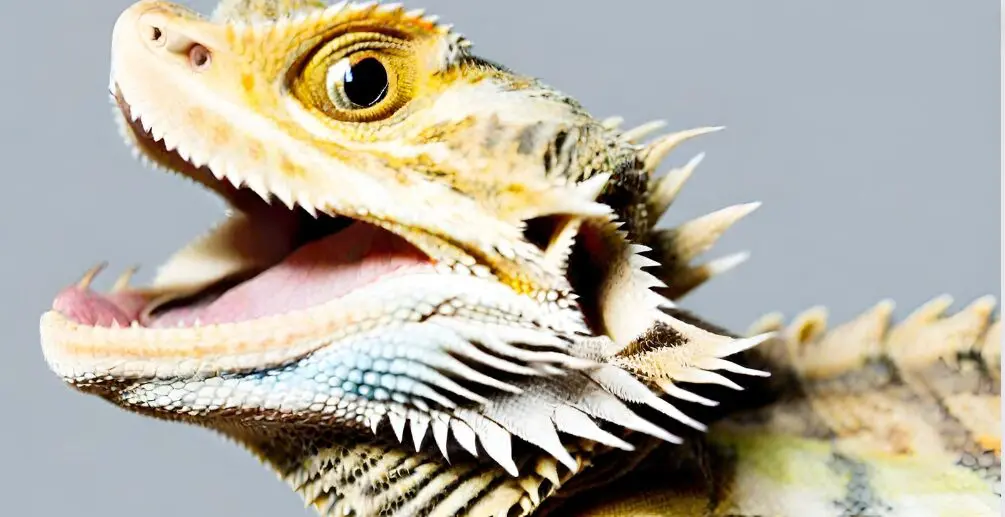Though the primary diet of bearded dragons consists of insects and vegetables, they can also eat fruits sometimes. Fruits are rich in water and help them stay hydrated during the hot seasons. Not all foods are good for them, though. So, what fruits can bearded dragons eat?
Bearded dragons can eat fruits that are less in sugar content. The presence of minerals is a plus point. Here is a list of safe fruits for them:
- Apples
- Plum and pears
- Guava
- Blueberries
- Blackberries
- Cherries
- Figs
- Grapes
- Melons
- Grapefruit
- Strawberries
- Mango
- Pineapple
- Watermelon, etc.
Fruits, however, must not be their primary food. Let me help you with the right way to feed them and why you should add fruits to their diet.
What Fruits Can Bearded Dragons Eat
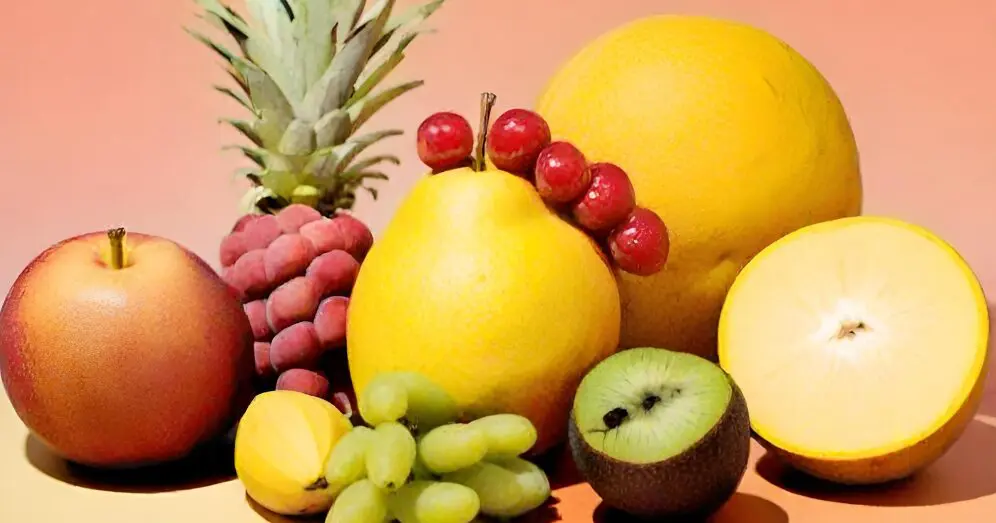
Despite their small sizes, bearded dragons can eat a variety of foods. Knowing the nutrition profiles will help you choose the right ones. Here are some of the safe fruits for your lizard pet.
1. Banana
| Nutrients | Amount per 100 g |
| Water | 74.9 g |
| Energy | 371 kJ |
| Protein | 1.09 g |
| Total Sugars | 12.2 g |
| Calcium | 5 mg |
| Magnesium | 27 mg |
| Phosphorus | 22 mg |
Though beardies can eat bananas, don’t feed them regularly. The fruit has a high amount of sugar and phosphorus. While phosphorus is needed in their body, excessive phosphorus can affect calcium consumption. This can lead to metabolic bone diseases.
The sugar amount in bananas is also high, 12% of their weight. Bearded dragons cannot digest sugar, and a high amount of sugar content is harmful to them. It leads to digestive issues, diarrheal, and even diabetes. Besides, the water content of bananas is not very high. Feed them the fruit once a month at max.
2. Pineapple
| Nutrients | Amount per 100 g |
| Water | 86 g |
| Energy | 50 kcal |
| Protein | 0.54 g |
| Fiber | 1.4 g |
| Total Sugars | 9.85 g |
| Calcium | 13 mg |
| Magnesium | 12 mg |
| Iron | 0.29 mg |
Pineapple is rich in water. Additionally, it offers crucial minerals like calcium and magnesium. It makes the fruit a good addition to their diet. However, the fruit is high in sugar, which is also a concern.
Let your lizard have a bite on the fruit. Does it show interest in the fruit? If yes, then keep a routine to offer it only once or twice a month, not more than that. If it does not want to eat the fruit, you can skip it. This is certainly not the healthiest component in their green flag fruit list.
2. Strawberries
| Nutrition | Amount per 100 g |
| Water | 91 g |
| Energy | 32 kcal |
| Protein | 0.67 g |
| Total Sugars | 4.89 g |
| Calcium | 16 mg |
| Magnesium | 13 mg |
| Potassium | 153 mg |
| Zinc | 0.14 mg |
| Sodium | 1 mg |
Strawberries are among the safest fruits for bearded dragons. These red berries are high in water and offer a decent amount of energy and minerals. It does not contain much sugar or phosphorus.
It does not mean that your reptile friend can eat as many strawberries as they want. No, don’t let them eat too many strawberries. They still contain sugar. Moreover, the fruit does not have the necessary vitamins. Lack of vitamins can lead to several health concerns. I feed half a strawberry every week or every other week. Overfeeding the fruit must be avoided.
4. Watermelon
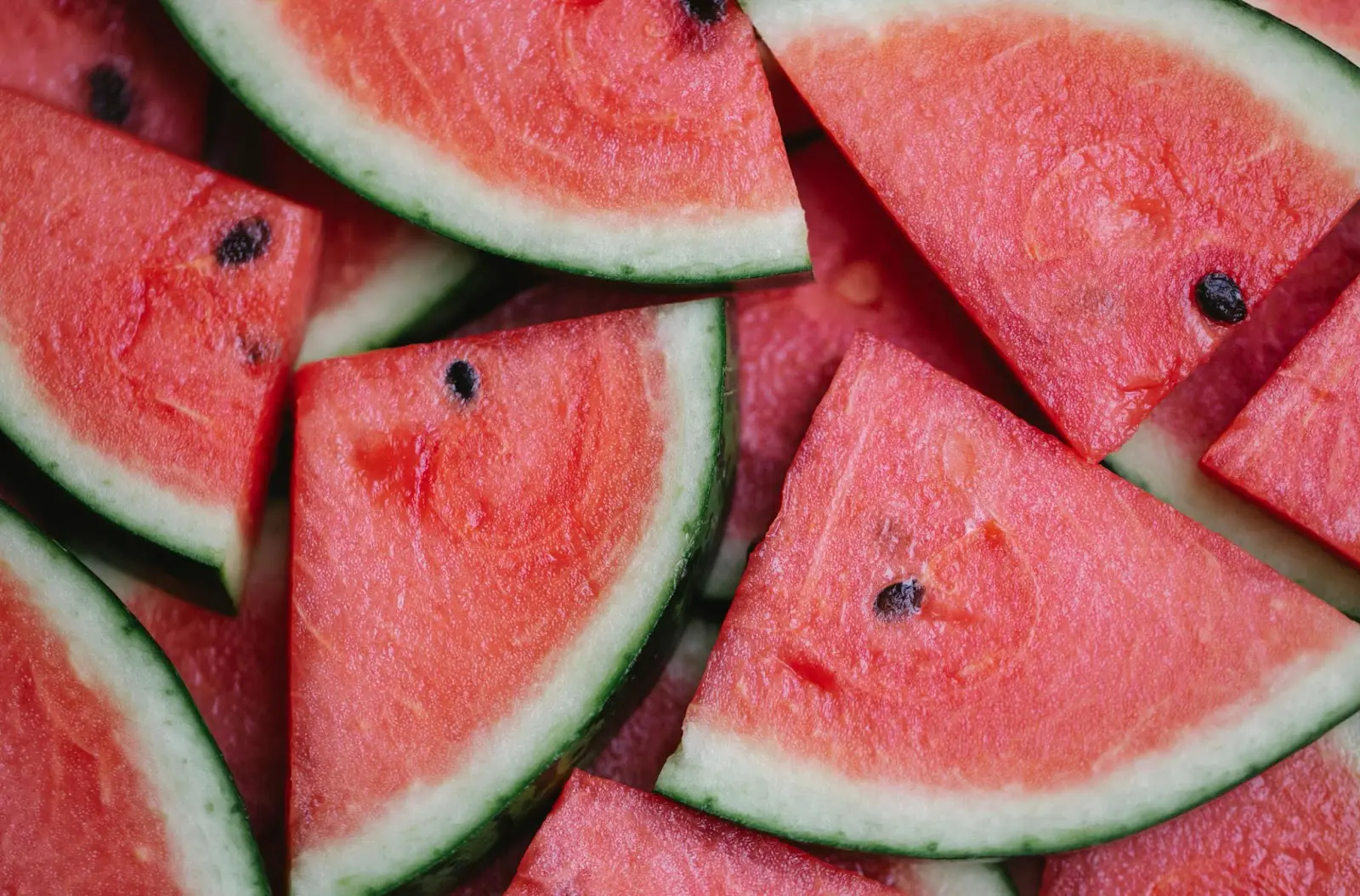
| Nutrient | Amount per 100 g |
| Water | 91.4 g |
| Energy | 30 kcal |
| Protein | 0.61 g |
| Fiber | 0.4 g |
| Total Sugars | 6.2 g |
| Calcium | 7 mg |
There are some arguments. I mean, it is a valid question: why would you feed watermelon to a lizard? Well, the fruit is more than 90% water. And bearded dragons rely on their food for necessary water. Yes, they drink water, but they still consume water from their food.
Therefore, if your beardie is suffering from dehydration, let it have some watermelon. By some, I mean a small portion. Don’t forget about the sugar content. It will be a nice cheat day for your dragon.
5. Raspberries

| Nutrients | Amount per 100 g |
| Water | 85.8 g |
| Energy | 52 kcal |
| Carbohydrate | 11.9 g |
| Protein | 1.2 g |
| Total Sugars | 4.42 g |
| Fiber | 6.5 g |
| Vitamin C | 26.2 mg |
| Calcium | 25 mg |
| Magnesium | 22 mg |
| Potassium | 151 mg |
Is your dragon bored of the same food every day? Then, try something different. Raspberries are always my first priority. It has all the positivity of a fruit. High water content, decent amount of protein, vitamin C, and minerals. The sugar level is also low.
The bright color of the fruit also stimulates hunger in bearded dragons. Slice one or two raspberries and scatter them in their enclosure. They will willingly eat them. This will improve the scale condition of bearded dragons by keeping them hydrated.
6. Dragon Fruit
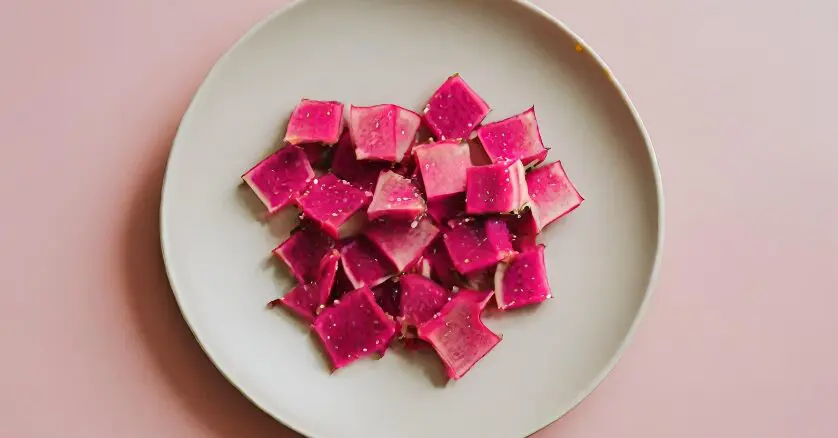
| Nutrient | Amount per 100 g |
| Water | 84 g |
| Energy | 57 kcal |
| Protein | 0.36 g |
| Fiber | 3.1 g |
| Sugar | 9.75 g |
| Potassium | 116 mg |
| Phosphorus | 12 mg |
| Calcium | 9 mg |
| Vitamin C | 4.3 mg |
Wouldn’t it be ironic if bearded dragons could not eat dragon fruits? From the name, it seems like these fruits are their favorite ones. All the jokes apart, beardies can have a little portion of the fruit. I feed two water cube-size pieces once a month or two.
One concern is that the fruit has a higher level of phosphorus than calcium. This can lead to calcium deficiency. Since you won’t give them the fruit more than once a month, it can be considered safe for them. This mostly depends on how well you can maintain a diet routine for your pet.
7. Grapes
| Nutrition name | Amount per 100 g |
| Water | 80.54 g |
| Energy | 69 kcal |
| Sugar | 16 g |
| Protein | 0.72 g |
| Fiber | 0.9 g |
| Calcium | 10 mg |
| Iron | 0.36 mg |
| Magnesium | 7 mg |
| Sodium | 2 mg |
| Vitamin B-6 | 0.086 mg |
Although many owners like to feed the fruit to beardies, I recommend keeping the number low. In fact, I was recommended by my veterinarian friend. Grapes contain a high amount of sugar, nearly 16% of its weight.
This much sugar is not good for the lizard. They can face different health complications. Apart from water and sugar, grapes do not contain other nutrients. Just to keep Spike happy, I let him eat the fruit only once or twice in a season.
8. Kiwi
| Nutrients | Amount per 100g |
| Water | 83.1 g |
| Energy | kcal |
| Protein | 1.14 g |
| Total Sugars | 8.99 g |
| Fiber | 3 g |
| Calcium | 34 |
| Iron | 0.31 |
| Magnesium | 17 |
| Phosphorus | 34 |
| Vitamin B-6 | 0.063 |
Kiwi contains vitamin B-6, which is highly beneficial for bearded dragons. It also has a higher amount of protein than most other fruits. These are the reasons I sometimes give it to my pet.
The ideal ratio of calcium to phosphorus is 2:1. But kiwi has a 1:1 ratio. This is another drawback of the fruit as a food included in a bearded diet. It is safe as an occasional treat but cannot be a primary food.
Health Benefits of Feeding Fruits to Bearded Dragons
To be honest, bearded dragons actually don’t need fruits that much. All they need is insects and vegetables. However, you can give them various fruits as rare treats. Adding them as an occasional treat has some advantages, such as:
1. Provides Necessary Hydration
Fruits can contribute significantly to a bearded dragon’s hydration. In their natural habitat, beardies often don’t have access to a constant source of water. They obtain much of their needed moisture from foods. This habit remains the same in their captive life.
Most fruits you have seen are rich in water. Giving beardies during the summer in a small amount contributes to their hydration greatly. Remember, dehydration can lead to several health problems in them. Fruits aid in preventing dehydration.
2. Keeps the Digestive System Healthy
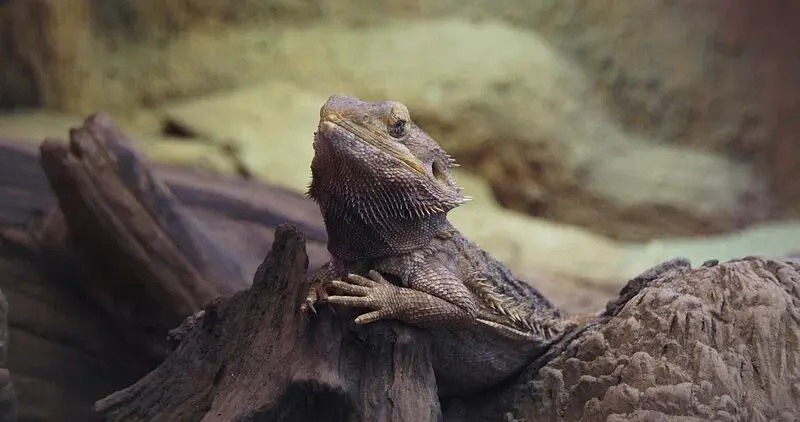
Fruits can help bearded dragons digest their meals. Many fruits contain fiber, which aids in smooth digestion and prevents constipation. Fruits also have natural enzymes that break down food. It is similar to how their own gut bacteria work.
Fruits lighten the workload on their digestive system and keep things running smoothly. However, don’t overfeed them with fruits. It can have adverse effects, too. Too many fruits disrupt the balance and may cause diarrhea.
3. Adds a Variety to Their Diet
Bearded dragons can get bored eating the same things all the time. Offering a variety of fruits adds interesting textures and flavors to their diet. This can help encourage them to eat and keep mealtimes exciting.
Just like with any new food, introduce fruits slowly. Don’t give them any big chunks. Always keep in mind the sugar factor.
How to Feed Fruits to Bearded Dragons?
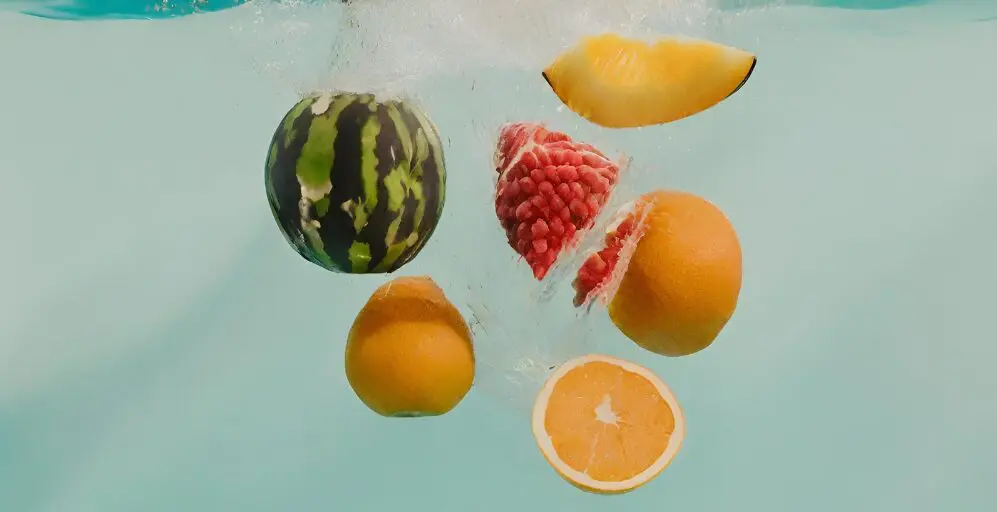
Feeding fruits to bearded dragons should be done in a proper way. Otherwise, it can lead to adverse effects. Here is a guide on how you can do it:
- Wash it well: Wash all fruits thoroughly under clean running water. Fruits often contain dirt and pesticides. With a thorough rinse, you can get rid of them.
- Chop it small: Cut fruits into bite-sized pieces. It should not be bigger than the space between your bearded dragon’s eyes. This prevents choking and makes it easier to eat.
- Remove pits and seeds: Always remove pits and seeds before offering fruit to your dragon. These can be toxic or cause digestive issues.
- Start slow and monitor: Introduce new fruits slowly. Offer a small amount at first to see how your bearded dragon reacts. Monitor them for any signs of digestive upset.
- Limit the amount: Fruits should be a treat, not a staple food. Aim for fruits to make up only 10-20% of their total plant intake.
- Offer variety: Rotate different fruits to provide a well-rounded diet. You have plenty of options. Don’t feed the same food over and over again.
- Consider hydration: Fruits can help with hydration. Still, you must offer a shallow water dish for your bearded dragon to drink from as well.
Why Can’t Bearded Dragons Eat Fruits All the Time?
A number of reasons prevent fruits from becoming the primary food for your pet dragon. Let me share the primary causes with you.
1. Not Their Natural Diet
Bearded dragons originated in the deserts of Australia. There, they do not have access to fruits. They primarily live on insects, bugs, and vegetables. So, it is not in their genes to eat fruits. However, they have adapted to many other countries and can consume small amounts of fruits. You should try to stick to their natural diet.
2. Sugary Issues
Most fruits are high in sugar. Some of them even contain more than 10% sugar. This much sugar is not safe for beardies as their digestive system is not capable of digesting sugar. If you feed too many fruits then the sugar will pile up in their body.
The undigested sugar can lead to several health hazards, including:
- Diarrhea
- Stomach aches
- Weight gain and obesity
- Malnutrition
- Tumors, etc.
3. Lack of Protein
Fruits do not contain much protein. At least, not as much as bearded dragons need. Protein is a crucial element for them as it contributes to their growth, bone development, and more. Protein deficiency is a severe health problem. It leads to:
- Muscle wasting
- Stunted growth
- Weak immune system
- Slow healing
- Reproductive issues
4. Too Much Water Content
Most fruits mostly contain water. Yes, they also have vitamins and minerals. But they are mostly water. A small amount of fruits can help beardies’ hydration, while regular feeding can cause health issues.
Their stomachs will be filled with water, and they won’t show interest in other foods. This can lead to issues like:
- Electrolyte imbalance
- Water intoxication
- Kidney issues
- Reduced appetite
5. Improper Calcium-Phosphorus Ratio
The ideal ratio of calcium to phosphorus for bearded dragons is 2:1. Be that as it may, most fruits have this ratio wrong. Some of them even have more phosphorus than calcium. This can also contribute to several health conditions, such as:
- Metabolic bone disease
- Poor growth and development
- Muscle weakness
- Egg-laying problems
FAQ
A few more questions that are often asked. I thought this needed your attention as well.
1. Can bearded dragons eat tomatoes?
Yes, bearded dragons can eat tomatoes in small amounts. The fruit is not full of nutrition, so it is a no-brainer to feed them too many tomatoes. It does not contain many vitamins or minerals. However, it can be a refreshing treat for the pet occasionally.
2. What fruit can a bearded dragon eat daily?
There actually aren’t any fruits that bearded dragons should eat daily. Fruits are treats due to their high sugar content. Offer them a variety in small amounts. Keep your focus on offering them a staple diet of vegetables and insects. Fruits can be nothing more than occasional treats.
3. What should Beardies not eat?
Beardies should avoid sugary treats, avocados, citrus fruits, fireflies, and wild insects. Also, some vegetables are too acidic to tolerate for bearded dragons. It includes garlic, onion, mushrooms, chives, avocados, eggplants, etc.
4. What fruit is toxic to bearded dragons?
Though not toxic, some fruits need to be avoided when added to bearded dragons’ diet. Such fruits are avocado, citrus fruits, and persimmons. They contain high amounts of acid, which beardies cannot tolerate.
Conclusion
Hopefully, you have no more doubts regarding, “What fruits can bearded dragons eat?” Though they can eat a variety of fruits, they should be given occasionally. Fruit can be given no more than twice a week. Be aware of the sugar, phosphorus, and excessive water content.
Try to mimic their natural diet of insects and vegetables. It will keep your pet healthy, strong, and active.
Read also:
